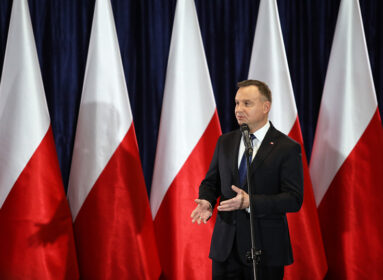By Shoshana Bryen
The Obama administration is angry that Senate proponents of additional sanctions against Iran (to be instituted if the interim accord expires without a final agreement) appear to be more skeptical of Iranian promises than the President and Secretary Kerry are. The administration is angry as well that signers, particularly Democratic senators, of the Kirk-Menendez Amendment find themselves in accord with the security concerns of the government of Israel. And finally, the administration is angry with American Jews.
The Jerusalem Post this week cited an Israel Radio report of an American official saying the President and Secretary of State Kerry are “disturbed over what is being perceived in their inner circle as ‘Jewish activism in Congress’ that they think is being encouraged by the Israeli government.” According to the Israel Radio report, the Israeli government is increasingly being viewed as “fanning the flames” among American Jews by encouraging them to promote the Israeli government position specifically on Iran sanctions.
David Remnick, who profiled the President in The New Yorker, said on NPR, “Obama is outraged by the deference to Netanyahu. I think [Obama’s] pretty outraged by the fact that there were so many Democrats that seem more interested in the point of view of Bibi Netanyahu and the Saudi leadership, than in their party leader and president.”
The President’s outrage is misplaced, and it skirts the edge of a nasty charge against not only Jews, but also against Democrats — Jewish and otherwise — who take a view contrary to his. ”Activism in Congress” is the sine qua non of a government responsive to the will of the people. And skepticism of Iran is warranted, since the Islamic Republic declared war on the United States in 1979.
The objects of presidential ire should be, in order, Iran, the governments of Western Europe, and himself.
President Obama’s early view of the deal included this upbeat assessment: “While today’s announcement is just a first step, it achieves a great deal. For the first time in nearly a decade, we have halted the progress of the Iranian nuclear program, and key parts of the program will be rolled back.”
Iranian Foreign Minister Zarif told CNN this week that nothing would be “rolled back.” ”The White House version both underplays the concessions and overplays Iranian commitment[.] … Why do we need to produce different texts? The White House tries to portray it as basically a dismantling of Iran’s nuclear program. That is the word they use time and again. And I urge you to read the entire text. If you find a single, a single word that even closely resembles dismantling or could be defined as dismantling in the entire text, then I would take back my comment. What Iran has agreed is not to enrich above 5 percent. We did not agree to dismantle anything.”
It should be noted that where Mr. Zarif claims that the American text and the Iranian text differ, only the Iranian text has been made available. The White House has declined to make the text of the agreement public.
As for Mr. Kerry, he touted the P5+1/Iran agreement last November as no threat to Israel. “I believe that from this day, Israel is safer,” he said, adding that the deal “would expand the amount of time in which [Iran] can break out, rather than narrow it. We’re going to have insights to their program that we didn’t have before. Israel, if you didn’t have these things, would be seeing Iran to continue on a daily basis to narrow the breakdown [sic] time.”
Since then, the world has discovered that Iran is building a new generation of centrifuges for uranium enrichment. While the Joint Action Plan forbids their installation for the duration of the agreement, Iran’s nuclear chief, Ali Akbar Salehi, points out that they’re not ready for installation anyhow, and there remains testing to do. In the same way, the Iranians circumvented Western restrictions on the Arak heavy water plant — Iran agreed not to “commission the reactor,” but it isn’t ready for commissioning; there’s other work to do at the site, and the agreement doesn’t appear to cover that. Foreign Minister Zarif told a group of students in Tehran, “The structure of our nuclear program has been maintained.”
Secretary Kerry continued, telling Politico, “I believe Israel will, in fact, be safer, provided we make sure these sanctions do not get lifted in a way that reduces the pressure on Iran, and I don’t think they will be.”
He thought wrong. The Europeans, including our partners in the P5+1, are lifting pressure with reckless abandon.
Ha’aretz reports: “France is sending business executives by the planeload to Iran. German and Dutch entrepreneurs are taking courses on how to close a deal in Tehran, and carmakers are drawing up plans for investment. Europe’s business community is abuzz with preparations to rush back into Iran, an economic powerhouse in the Middle East, as some sanctions are suspended.”
The New York Times wrote: “Hossein Sheikholeslami has been busy in recent weeks, since the deal was agreed to in principle, shuttling back and forth between the capital and the airport to welcome all the guests: parliamentary missions from old European trading partners like Germany, Italy and Finland, which are eager to renew contacts.”
The Washington Post headline that said it all: “European Businesses Rushing to Find Iran Bonanza.”
The Los Angeles Times earlier this week quoted Salehi of Iran’s nuclear agency, saying on state television, “The iceberg of sanctions is melting while our centrifuges are still working.”
The fact that Salehi is correct is what should fuel the ire of the President and the Secretary of State. That, and the fact that they didn’t see it coming.
Shoshana Bryen is senior director of the Jewish Policy Center.







 Southern New England Jewish Ledger
Southern New England Jewish Ledger












